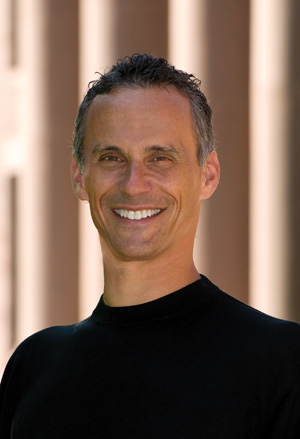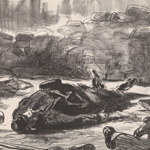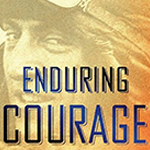PRESIDENT’S LETTER

My book Beyond the University: Why Liberal Education Matters has received a gratifying amount of interest since its publication last spring, and this semester I’ve been traveling around the country to talk to alumni and others about the issues it raises. In New York, Houston, Dallas, Los Angeles, Boston and Chicago those discussions have often turned to the importance of critical thinking. I’ve also been teaching my philosophy and the movies class this term, often emphasizing to my students the value of becoming absorbed in films that might at first glance be off-putting to them.
Lately, I’ve been considering the interplay of absorption and critical thinking in teaching, in scholarship, in learning. As a teacher, I certainly want students to develop their critical thinking skills, but I also want them to expand their capacity to become absorbed in works that bountifully repay their attention. I teach old movies and old books, some of which are easy for students to lose interest in, or even laugh off. Part of my task is to help them open up to films and texts, their beauty, their teaching, their historical significance. Since this is also a philosophy class, I also want them to think rigorously about the issues of identity, fidelity, freedom, and trauma raised by these works.
In the national debate on liberal education, I often hear accusations that many classes (like the ones I teach, for example) aren’t useful enough for students. Critics of higher education claim that we need much more instrumental instruction to remain economically competitive. There is also the refrain: “Most people don’t need a lot of education, just specialized training in one thing, because the economy has shifted.” Throughout American history people have said, “Yes, we don’t want all these people learning so much because the economy has shifted.” They said that in 1918, they said that in 1948, and now they’re saying it again.
These calls for a narrowly utilitarian education amount in the end to calls for conformity. Today, the “shift in the economy” likely means technological change will produce only an accelerated pace of innovation, and it’s my belief that a broad, wide-ranging education is the best way to be able to shape that change rather than just be victimized by it. Students in college should not be learning how to conform, but rather how to stand on their own feet. This is the opposite of learning how to fit into a slot created by somebody else. As Emerson said long ago, college is not the place for drilling and memorization; college is the place for animating the world. When the world is more alive for you, when more parts of the world matter to you, your inquiries into how things work and what they might mean take on both personal and social significance.
Absorption and inquiry are virtues not just on campuses. Many occupations require profound attention, as do various forms of artistic and entrepreneurial practice. But lots of pundits argue that most folks won’t be required to become deeply involved with their jobs or anything else, so why should they have access to a high-quality education? Under the guise of practicality, this is old-fashioned condescension combined with a desire to protect the status quo of inequality.
At Wesleyan I see young people eager to question their own and other people’s assumptions, and I see faculty engaged in the “education of the whole person” and not just training for a specific task. I don’t find many conformists at alma mater; I don’t see people only following the herd or people who have already made up their mind about what the rest of their lives will look like. I see people on the staff discovering new talents and finding ways to share them with others. I see faculty learning about their specific, specialized research areas, but also about the wider society and natural world. And I see students with whom I can continue my own education—students who are eager to find meaning in their lives as well as skills with which to live.
The willingness today by some to limit higher education to only certain students or to constrict the college curriculum to a neat, instrumental itinerary is a critical mistake, one that neglects a deep American tradition of humanistic learning. This tradition has been integral to our nation’s success and has enriched the lives of generations of students by enhancing their capacities for shaping themselves and reinventing the world they will inhabit. Since the founding of this country, education has been closely tied to individual freedom, and to the ability to think for oneself and to contribute to society by unleashing one’s creative potential. The pace of change has never been faster, and the ability to shape change and seek opportunity has never been more valuable. If we want to push back against inequality and enhance the vitality of our culture and economy, we need to practice absorption and inquiry within the framework of pragmatic liberal education. THIS IS WHY.


